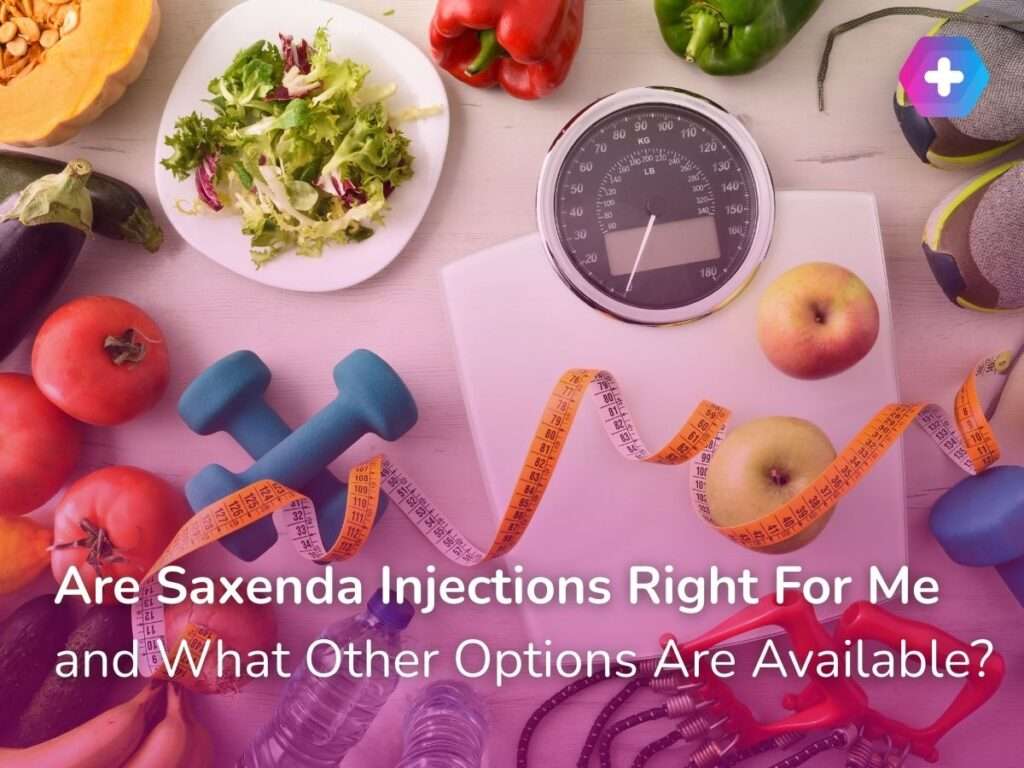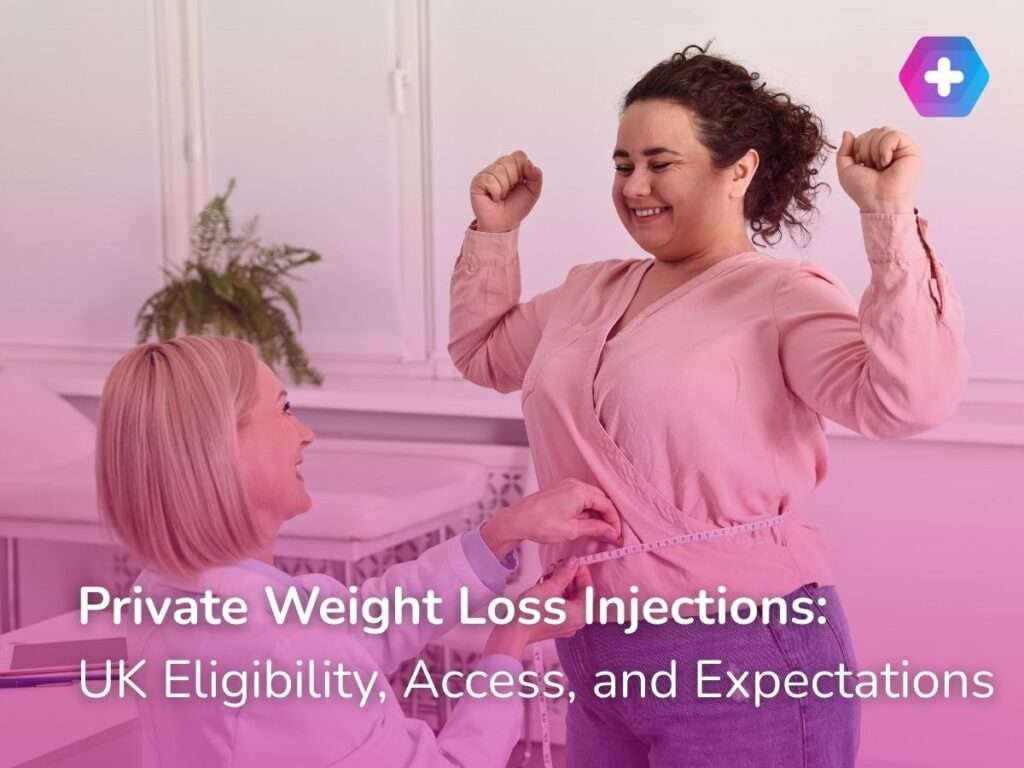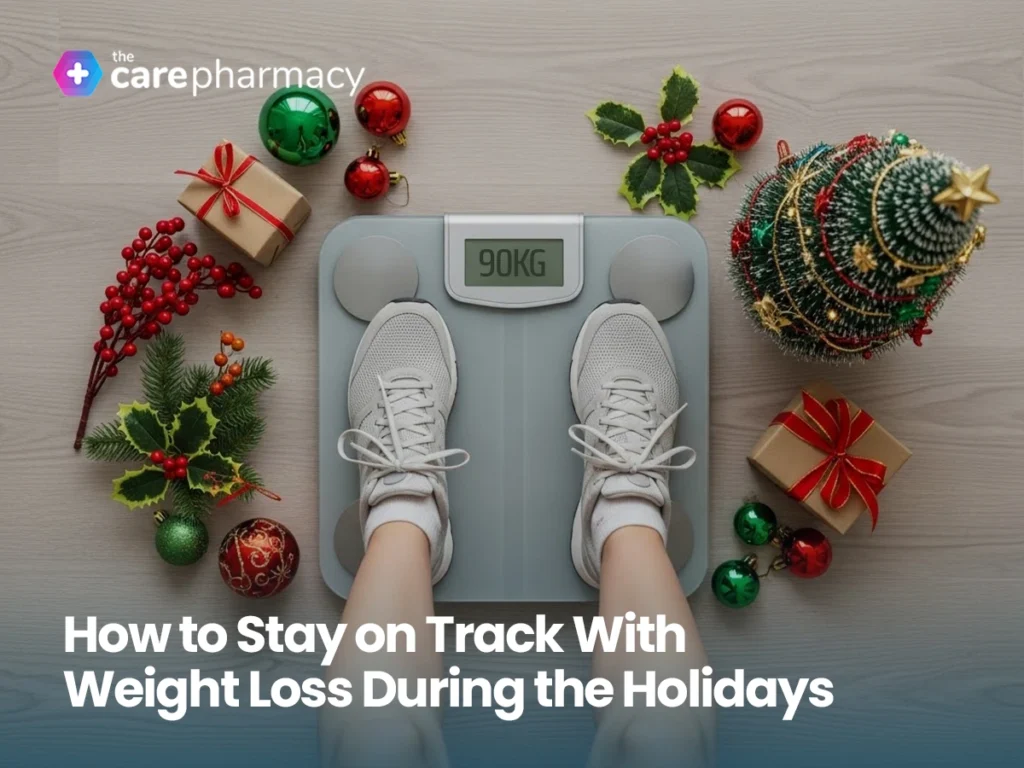Losing weight can be an uphill battle, especially when dealing with constant hunger and cravings. Many people struggle to stay on track with their diet plans due to these challenges, leading to frustration and setbacks. This is where Wegovy comes in—a revolutionary medication that helps regulate appetite and make weight loss more manageable. But taking Wegovy alone isn’t enough. Understanding how to manage cravings, eat the right foods, and make sustainable lifestyle changes is key to achieving long-term success.
In this guide, we’ll explore how Wegovy works, why cravings still happen, and how you can effectively manage your diet while on this medication to maximise your weight loss results.
What is Wegovy?
Wegovy (Semaglutide) is a prescription weight-loss medication designed for individuals struggling with obesity or weight-related conditions. It belongs to a class of drugs known as GLP-1 receptor agonists, which work by mimicking the natural hormone glucagon-like peptide-1 (GLP-1) to regulate blood sugar levels and appetite. Wegovy helps you eat less by influencing how the brain perceives hunger and achieve long-term weight management.
Unlike traditional weight loss methods that rely on willpower and restrictive diets, Wegovy works biologically to reduce hunger and increase feelings of fullness. This makes it a highly effective option for individuals who have struggled with previous weight loss attempts. However, it is important to note that Wegovy is not a standalone solution—a healthy diet, lifestyle changes, and proper medical guidance are essential for long-term success.

How Does Wegovy Regulate Appetite?
Wegovy primarily works by affecting appetite control centres in the brain, particularly in the hypothalamus, which is responsible for hunger and satiety signals. When taken as prescribed, Wegovy:
- Slows gastric emptying, making you feel fuller for longer.
- Reduces hunger signals, decreasing the urge to eat frequently.
- Lowers food cravings, especially for high-calorie, sugary, and fatty foods.
- Enhances portion control, making it easier to stick to a balanced diet.
- Improves metabolic response, leading to more sustainable weight loss over time.

However, while Wegovy effectively curbs hunger, it does not eliminate cravings altogether. Understanding how to manage these cravings is crucial for sustainable weight loss.
How to Tackle Food Cravings with Wegovy?
Even with appetite suppression, cravings can still occur due to habits, emotions, or certain food triggers. Here are some effective ways to manage them:
1. Identify Your Triggers
Keep a food journal to track when and why you crave certain foods. Stress, boredom, and emotional triggers can often drive cravings rather than genuine hunger. Identifying your triggers allows you to develop healthier coping mechanisms, such as taking a walk, drinking herbal tea, or engaging in a hobby.
2. Stay Hydrated
Dehydration can sometimes be mistaken for hunger. Drinking a glass of water before meals can help manage appetite and prevent overeating. Additionally, infused water with lemon or cucumber can add a refreshing taste without extra calories. You can also take hydrating pills and electrolytes for maximum hydration throughout the day.
3. Opt for High-Protein Snacks
If you need a snack, go for protein-rich options like Greek yoghurt, boiled eggs, or nuts. Protein helps keep you full and reduces sugar cravings. Studies show that individuals who consume adequate protein are less likely to experience binge eating episodes.
4. Incorporate Fibre-Rich Foods
Foods high in fibre, such as vegetables, whole grains, and legumes, promote satiety and keep blood sugar stable, reducing sudden cravings. Soluble fibre, found in oats and beans, slows digestion and helps maintain steady energy levels.
5. Avoid Processed and Sugary Foods
Highly processed foods can cause blood sugar spikes and crashes, which lead to stronger cravings. Stick to whole, nutrient-dense foods. Instead of processed snacks, try homemade alternatives such as roasted chickpeas or air-popped popcorn with a sprinkle of nutritional yeast.
6. Manage Stress and Sleep
Poor sleep and high-stress levels can increase the hormone ghrelin, which drives hunger. Aim for 7-9 hours of quality sleep and manage stress through meditation, exercise, or deep breathing techniques. Cortisol, the stress hormone, is linked to increased cravings for fatty and sugary foods, so reducing stress is key.
7. Use Mindful Eating Techniques
Eat slowly, chew thoroughly, and focus on your meal to enhance satisfaction and prevent overeating. Mindful eating helps you recognise when you are truly full and prevents emotional eating.
8. Plan Your Meals in Advance
Meal prepping reduces impulsive eating and ensures that you have healthy options readily available. This helps in avoiding unhealthy last-minute choices when hunger strikes.
Why Diet Matters When You Are on Wegovy?
While Wegovy helps control appetite, your diet still plays a key role in weight loss and overall health. Eating nutrient-rich foods ensures that your body gets essential vitamins and minerals while preventing muscle loss and fatigue.
A balanced diet also enhances Wegovy’s effectiveness, making it easier to sustain long-term results. Without proper nutrition, you may experience fatigue, nutrient deficiencies, or slowed metabolism, which could hinder progress. Additionally, a diet rich in whole foods supports gut health, which plays a significant role in metabolism and hunger regulation.
What is the Best Diet to Follow on Wegovy?
The best diet on Wegovy focuses on whole foods, balanced macronutrients, and portion control. Here’s a simple guide:
1. Prioritise Lean Proteins
- Chicken, turkey, fish, eggs, tofu, and legumes
- Supports muscle maintenance and keeps you full
2. Load Up on Vegetables
- Leafy greens, cruciferous vegetables, peppers, and cucumbers
- High in fibre and essential nutrients
3. Choose Healthy Carbohydrates
- Whole grains (brown rice, quinoa, oats), sweet potatoes, and legumes
- Helps sustain energy without causing blood sugar spikes
4. Include Healthy Fats
- Avocados, nuts, seeds, olive oil, and fatty fish
- Supports heart health and satiety
5. Minimise Processed & Sugary Foods
- Avoid refined carbs, sugary drinks, and ultra-processed snacks
- Prevents cravings and blood sugar fluctuations
6. Stay Hydrated
- Drink at least 2 litres of water daily
- Supports digestion, reduces hunger, and prevents dehydration-related cravings
7. Eat Smaller, Frequent Meals
Eating in small portions helps stabilise blood sugar and prevents binge eating.
8. Include Fermented Foods
- Yoghurt, kimchi, kefir, and sauerkraut
- Supports gut health and digestion, which are crucial for weight management
Final Takeaways
Managing appetite and cravings while on Wegovy requires a combination of medication, mindful eating, and a well-balanced diet. You have to make the right food choices and address cravings effectively to maximise Wegovy’s benefits and achieve long-term weight loss success.
Start Your Weight Loss Journey with The Care Pharmacy
At The Care Pharmacy, we provide expert guidance and trusted weight loss medications like Wegovy to help you achieve your weight loss goals safely and effectively. Whether you need Wegovy prescriptions, diet advice, or general support, we’re here to help.

Start Your Consultation
FAQs
What are the 5 ways to increase weight loss on Wegovy?
Here are 5 ways to maximise weight loss on Wegovy:
- Eat Healthy Foods: Stick to a low-calorie, nutrient-rich diet, even if Wegovy reduces appetite. Opt for high-protein smoothies or vegetable-based soups to maintain nutrition.
- Stay Active: Engage in regular exercise like walking, yoga, or swimming to build muscle and improve weight loss results.
- Get Enough Sleep: Proper sleep helps regulate hunger hormones and metabolism, preventing weight gain.
- Follow Your Wegovy Dosage: Adhere to your prescribed schedule to allow your body to adjust and maximise the medication’s effectiveness.
- Commit to Long-Term Changes: Sustainable weight loss requires lifestyle adjustments. Stay focused on your goal and adapt to healthier habits.
How does Wegovy stop cravings?
Wegovy stops cravings by mimicking GLP-1, a hormone that regulates appetite. It slows digestion, reduces hunger signals, stabilises blood sugar, and alters brain activity linked to cravings, making it easier to control food intake.
Why am I still hungry on Wegovy?
When it comes to suppressing hunger on Wegovy, the first and foremost important step is to evaluate your diet. However, you can still feel hungry on Wegovy for several reasons:
- Normal Hunger Signals – Wegovy reduces appetite but doesn’t eliminate hunger completely. Your body will still signal when it needs nourishment.
- Individual Differences – Some people experience stronger hunger signals due to metabolism, activity levels, or hormonal responses.
- Diet & Nutrition – If your meals lack protein, fibre, or healthy fats, you might feel hungrier despite being on Wegovy.
- Sleep & Stress – Poor sleep and high-stress levels can increase ghrelin (the hunger hormone), making you feel hungrier.
- Adjustment Period – Your body might take time to fully respond to Wegovy, especially in the early weeks of treatment.
If persistent hunger affects your weight loss journey, focus on nutrient-dense foods, proper hydration, and lifestyle adjustments. If concerns continue, consult your healthcare provider for personalized guidance.
How long does it take for Wegovy to suppress appetite?
The time it takes for Wegovy (semaglutide) to suppress appetite varies depending on the individual, dosage, and other personal health factors.
Research suggests that many patients experience a noticeable reduction in hunger, fewer cravings, and improved eating control within 12 weeks of starting treatment. However, studies also show that appetite suppression continues to improve over time, with significant results seen by week 20 and extending up to two years.
Over an extended period, patients have reported:
- Reduced desire for salty and spicy foods
- Fewer cravings for dairy and starchy foods
- Better ability to resist cravings
- Improved control over eating habits
How to break a plateau on Semaglutide?
The best way to break a plateau on Semaglutide is when you alter the energy balance which can be done through exercise or physical activity. Combining physical activity with Semaglutide enhances weight loss, helping to overcome plateaus by boosting metabolism and promoting muscle growth.
Medically reviewed by
Mohammed Lakhi
Superintendent Pharmacist














